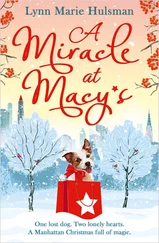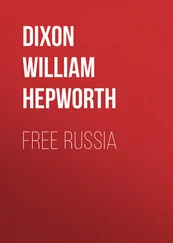Nikolai Nekrasov - Who Can Be Happy and Free in Russia?
Здесь есть возможность читать онлайн «Nikolai Nekrasov - Who Can Be Happy and Free in Russia?» весь текст электронной книги совершенно бесплатно (целиком полную версию без сокращений). В некоторых случаях можно слушать аудио, скачать через торрент в формате fb2 и присутствует краткое содержание. Год выпуска: 2005, Жанр: Поэзия, на английском языке. Описание произведения, (предисловие) а так же отзывы посетителей доступны на портале библиотеки ЛибКат.
- Название:Who Can Be Happy and Free in Russia?
- Автор:
- Жанр:
- Год:2005
- ISBN:нет данных
- Рейтинг книги:3 / 5. Голосов: 1
-
Избранное:Добавить в избранное
- Отзывы:
-
Ваша оценка:
- 60
- 1
- 2
- 3
- 4
- 5
Who Can Be Happy and Free in Russia?: краткое содержание, описание и аннотация
Предлагаем к чтению аннотацию, описание, краткое содержание или предисловие (зависит от того, что написал сам автор книги «Who Can Be Happy and Free in Russia?»). Если вы не нашли необходимую информацию о книге — напишите в комментариях, мы постараемся отыскать её.
Who Can Be Happy and Free in Russia? — читать онлайн бесплатно полную книгу (весь текст) целиком
Ниже представлен текст книги, разбитый по страницам. Система сохранения места последней прочитанной страницы, позволяет с удобством читать онлайн бесплатно книгу «Who Can Be Happy and Free in Russia?», без необходимости каждый раз заново искать на чём Вы остановились. Поставьте закладку, и сможете в любой момент перейти на страницу, на которой закончили чтение.
Интервал:
Закладка:
Oh, beautiful summer!
No time is so gorgeous, 30
So regal, so rich.
You full yellow cornfields,
To look at you now
One would never imagine
How sorely God's people
Had toiled to array you
Before you arose,
In the sight of the peasant,
And stood before him,
Like a glorious army 40
In front of a Tsar!
'Tis not by warm dew-drops
That you have been moistened,
The sweat of the peasant
Has fallen upon you.
The peasants are gladdened
At sight of the oats
And the rye and the barley,
But not by the wheat,
For it feeds but the chosen: 50
"We love you not, wheat!
But the rye and the barley
We love—they are kind,
They feed all men alike."
The flax, too, is growing
So sweetly and bravely:
"Ai! you little mite!
You are caught and entangled!"
A poor little lark
In the flax has been captured; 60
It struggles for freedom.
Pakhóm picks it up,
He kisses it tenderly:
"Fly, little birdie!" …
The lark flies away
To the blue heights of Heaven;
The kind-hearted peasants
Gaze lovingly upwards
To see it rejoice
In the freedom above…. 70
The peas have come on, too;
Like locusts, the peasants
Attack them and eat them.
They're like a plump maiden—
The peas—for whoever
Goes by must needs pinch them.
Now peas are being carried
In old hands, in young hands,
They're spreading abroad
Over seventy high-roads. 80
The vegetables—how
They're flourishing also!
Each toddler is clasping
A radish or carrot,
And many are cracking
The seeds of the sunflower.
The beetroots are dotted
Like little red slippers
All over the earth.
Our peasants are walking, 90
Now faster—now slower.
At last they have reached it—
The village 'Stripped-Naked,'
It's not much to look at:
Each hut is propped up
Like a beggar on crutches;
The thatch from the roofs
Has made food for the cattle;
The huts are like feeble
Old skeletons standing, 100
Like desolate rooks' nests
When young birds forsake them.
When wild Autumn winds
Have dismantled the birch-trees.
The people are all
In the fields; they are working.
Behind the poor village
A manor is standing;
It's built on the slope
Of a hill, and the peasants 110
Are making towards it
To look at it close.
The house is gigantic,
The courtyard is huge,
There's a pond in it too;
A watch-tower arises
From over the house,
With a gallery round it,
A flagstaff upon it.
They meet with a lackey 120
Near one of the gates:
He seems to be wearing
A strange kind of mantle;
"Well, what are you up to?"
He says to the friends,
"The Pomyéshchick's abroad now,
The manager's dying."
He shows them his back,
And they all begin laughing:
A tiger is clutching 130
The edge of his shoulders!
"Heh! here's a fine joke!"
They are hotly discussing
What kind of a mantle
The lackey is wearing,
Till clever Pakhóm
Has got hold of the riddle.
"The cunning old rascal,
He's stolen a carpet,
And cut in the middle 140
A hole for his head!"
Like weak, straddling beetles
Shut up to be frozen
In cold empty huts
By the pitiless peasants.
The servants are crawling
All over the courtyard.
Their master long since
Has forgotten about them,
And left them to live 150
As they can. They are hungry,
All old and decrepit,
And dressed in all manners,
They look like a crowd
In a gipsy encampment.
And some are now dragging
A net through the pond:
"God come to your help!
Have you caught something, brothers?"
"One carp—nothing more; 160
There used once to be many,
But now we have come
To the end of the feast!"
"Do try to get five!"
Says a pale, pregnant woman,
Who's fervently blowing
A fire near the pond.
"And what are those pretty
Carved poles you are burning?
They're balcony railings, 170
I think, are they not?"
"Yes, balcony railings."
"See here. They're like tinder;
Don't blow on them, Mother!
I bet they'll burn faster
Than you find the victuals
To cook in the pot!"
"I'm waiting and waiting,
And Mítyenka sickens
Because of the musty 180
Old bread that I give him.
But what can I do?
This life—it is bitter!"
She fondles the head
Of a half-naked baby
Who sits by her side
In a little brass basin,
A button-nosed mite.
"The boy will take cold there,
The basin will chill him," 190
Says Prov; and he wishes
To lift the child up,
But it screams at him, angry.
"No, no! Don't you touch him,"
The mother says quickly,
"Why, can you not see
That's his carriage he's driving?
Drive on, little carriage!
Gee-up, little horses!
You see how he drives!" 200
The peasants each moment
Observe some new marvel;
And soon they have noticed
A strange kind of labour
Proceeding around them:
One man, it appears,
To the door has got fastened;
He's toiling away
To unscrew the brass handles,
His hands are so weak 210
He can scarcely control them.
Another is hugging
Some tiles: "See, Yegórshka,
I've dug quite a heap out!"
Some children are shaking
An apple-tree yonder:
"You see, little Uncles,
There aren't many left,
Though the tree was quite heavy."
"But why do you want them? 220
They're quite hard and green."
"We're thankful to get them!"
The peasants examine
The park for a long time;
Such wonders are seen here,
Such cunning inventions:
In one place a mountain
Is raised; in another
A ravine yawns deep!
A lake has been made too; 230
Perhaps at one time
There were swans on the water?
The summer-house has some
Inscriptions upon it,
Demyán begins spelling
Them out very slowly.
A grey-haired domestic
Is watching the peasants;
He sees they have very
Inquisitive natures, 240
And presently slowly
Goes hobbling towards them,
And holding a book.
He says, "Will you buy it?"
Demyán is a peasant
Acquainted with letters,
He tries for some time
But he can't read a word.
"Just sit down yourself
On that seat near the linden, 250
And read the book leisurely
Like a Pomyéshchick!"
Интервал:
Закладка:
Похожие книги на «Who Can Be Happy and Free in Russia?»
Представляем Вашему вниманию похожие книги на «Who Can Be Happy and Free in Russia?» списком для выбора. Мы отобрали схожую по названию и смыслу литературу в надежде предоставить читателям больше вариантов отыскать новые, интересные, ещё непрочитанные произведения.
Обсуждение, отзывы о книге «Who Can Be Happy and Free in Russia?» и просто собственные мнения читателей. Оставьте ваши комментарии, напишите, что Вы думаете о произведении, его смысле или главных героях. Укажите что конкретно понравилось, а что нет, и почему Вы так считаете.











